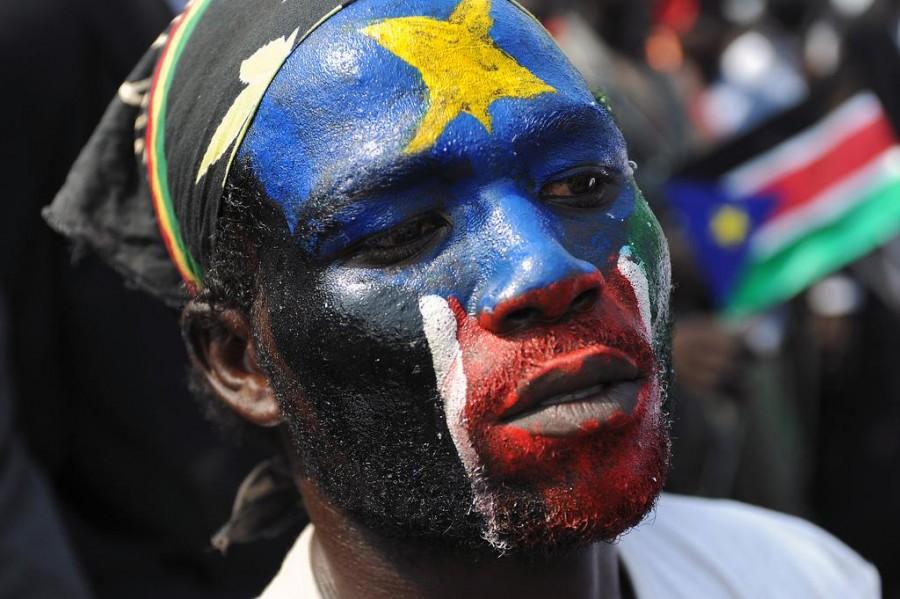On July 9, after decades of unrest between northern and southern Sudan, South Sudan officially declared its independence and was welcomed into the global community and the United Nations as Africa’s newest nation.
The declaration of independence was the result of a January referendum in which 98.8 percent of the votes were cast in favor of separation from the central Sudanese government, according to a report from the Congressional Research Service.
The referendum had been a part of the Sudanese Comprehensive Peace Agreement that, in 2005, brought Africa’s longest-running civil war to a relative halt. While causes of the civil war are manifold and disputed, the conflicts within Sudan began in 1965, when Sudan became the first Sub-Saharan African country to break away from European colonization and establish independence.
Assistant Professor of Sociology and Anthropology Tom Guthrie, explained in an email the role European colonization has had in many of the internal conflicts within African countries.
“European nations divided the continent among themselves, creating new nation-states whose boundaries had little relationship to existing cultural or ethnic geographies,” Guthrie said. “In the postcolonial era, the existence of ethnic and religious groups that span state boundaries and the coexistence of multiple groups within state boundaries have produced political instability and violence.”
Sudan housed a great diversity of ethnicity, religious beliefs, and economic status, all of which may have played a role in the Sudanese Civil War, according to Specialist in African Affairs Ted Dagne.
South Sudan’s independence marks a peaceful agreement between the North and the South and closes the book on a civil war that killed nearly 1.5 million Sudanese citizens. On July 6, Sudan was among the first neighboring countries to recognize South Sudan as an independent nation, according to BBC News.
The United States also quickly jumped in to congratulate the fledgling nation on its accomplishments.
“On behalf of the people of the United States, I congratulate the people of Southern Sudan for a successful and inspiring referendum in which an overwhelming majority of voters chose independence,” President Barack Obama said in a February statement, responding to the successful referendum. “I am therefore pleased to announce the intention of the United States to formally recognize southern Sudan as a sovereign, independent state in July 2011.”
The United States sent a high-level presidential delegation to South Sudan to take part in the independence day celebrations, and Obama has announced that he will soon be naming an ambassador for the new country, according to the Congressional Research Service.
Assistant Professor of Business Management Deena Burris notes that such U.S. outreach toward South Sudan has been driven by various motives.
“From the perspective of the US, this is both a political and a humanitarian move,” Burris explained in an email. “From a political perspective, the U.S. needs a presence and allies in East Africa as well as access to an oil supply. Sudan’s location in Africa and proximity to the Middle East is important to the United States in terms of security.”
As Sudan and South Sudan seek to work together to maintain peaceful relations and strengthen their own prospective senses of national security, they have run into a couple of obstacles.
While both countries have clearly expressed their desires for peace, The New York Time reports that they are deadlocked in their disagreement on two critical issues — how to draw the north-south border and how to split up Sudan’s considerable oil profits.
In addition to those political question marks, South Sudan faces a number of challenges within its own borders. Although fighting between South Sudan and Sudan has officially come to a close, there are at least seven active rebel groups in the south, most recently charged with raids in an eastern region that have resulted in over 600 deaths, according to The New York Times.
In addition, the country remains extremely undeveloped, struggling with poor infrastructure, health care, and education, according to BBC.
Burris acknowledged the obstacles this underdevelopment poses, but expressed her beliefs that the fledgling nation could, someday, have an impact on the global community.
“Once a stable government can be established and revenues generated from oil and other businesses, then Sudan may be in a position to have a significant global presence, particularly in relation to global energy needs,” Burris said.
In the midst of the challenges the new nation faces, the people of South Sudan have embraced their independence with great eagerness and hope.
“The independence we celebrate today transfers the responsibility for our destiny to our hands,” said South Sudan’s President Salva Kiir in his independence day speech. “The challenges are great but we must begin the task of facing up to them today. While the pillars of a house are important, its foundation is even more critical. We must build a strong foundation for our new nation.”
According to an article on allafrica.com, Kiir promised government accountability and transparency to the people, and emphasized the importance of peace.
“As people who have endured suffering for so long, it is now time for us to become the exemplary nation of peace,” said Kiir in a statement on Martyr’s Day.

